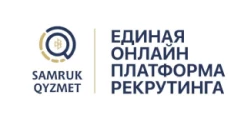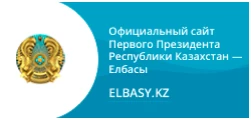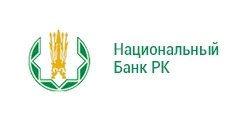Corporate Governance
- Main
- About Us
- Corporate Governance
Corporate Governance
NCR Petroleum LLP is dedicated to upholding the highest standards of corporate governance and feels that successful governance is necessary for the company to succeed. The success of NCR Petroleum LLP in the medium and long terms is contingent upon having a strong corporate governance policy that incorporates transparent procedures and practices, according to the Board of Directors. By following these standards, the Board as a whole can make important decisions and the company can operate in a way that considers all parties involved, including partners, suppliers, and employees.
The Board of Directors is ultimately in charge of establishing the Company’s strategic goals, crafting the plan and strategy, and overseeing the management of the company’s financial and operational assets. The CEO and the executive team are responsible for delivering and carrying out the business plan and strategy. The Board feels that it is acceptable to adhere to the Corporate Governance Code created by the Quoted Companies Alliance at this point in the Company’s development. The code offers a sensible and efficient governance framework that reflects the culture and values of our company, making it ideal for expanding businesses.
Corporate Governance Framework
The company must follow the 10 corporate governance standards listed below and make relevant disclosures in the annual report, on the website, or through a mix of the two, in accordance with the Quoted Companies Alliance (QCA) Code. NCR Petroleum LLP is happy to provide the following information regarding each of the principles, having complied with the QCA Code’s guidelines.
NCR Petroleum LLP prioritized developing oil and gas assets and carrying out accretive deals in order to maximize shareholder value. The company’s strategy is centered on maximizing the intrinsic value of its current assets in the Greater Buchan Area while simultaneously pursuing acquisitions that will diversify, add cash flow, and enhance the portfolio’s quality of investment prospects. Finding and managing the appropriate assets, where the company can create value, is essential to the plan. The following are the main strategic considerations for attaining this:
The Board believes that effective communication with shareholders is critical, provided that both parties have a shared understanding of the goals. The Company’s Annual and Interim reports are published, and the Board, chaired by the CEO, regularly communicates with shareholders in addition to making the necessary public announcements. Together with one-on-one meetings with significant shareholders throughout the year and special meetings with shareholders pertaining to significant transactions, the chief executive officer and chief financial officer regularly present to investors.
The Company maintains an up-to-date information flow on its website, which includes investor presentations, financial reports, news releases, and operational details on the Company’s operations. The Board also invites shareholders to the Annual General Meeting, where they can ask questions and hear an overview of the company’s performance and future plans for the year. The Executive Directors and the Company’s brokers brief the Board on the opinions of significant shareholders. The Board receives reports from analysts as well as share register analyses on a regular basis.
The UN Global Compact’s tenets guide the Company’s operational actions, and the Board actively addresses the environmental, social, and governance aspects of the business. It is widely acknowledged that the Company’s employees, as well as its contractors, suppliers, regulators, and other stakeholders, are essential to the Company’s long-term success. Being a small, inclusive company, the Company is able to quickly identify any employee behavior that is at odds with its goals and core values. Despite modest, the company has many of the policies seen in larger businesses, and its board has a plethora of expertise handling employee-related issues.
High Health, Safety, Security, and Environment (HSSE) standards are essential to the Company’s operating success, according to the Board. The HSSE Policy is binding on all directors, officers, managers, workers, and contractors. The Board reviews it on a regular basis and updates and reissues it as needed. The Sustainability Report, which is part of the Annual report, goes into additional detail about our overall strategy for handling social and stakeholder responsibilities.
The Board oversees the Company’s internal control system and is in charge of evaluating its efficacy. The system is made to control the risk of not achieving the Company’s strategic goals and business model, not to completely eradicate it. One of these controls is the Board’s approval of all major initiatives, rules, and processes.
The Board keeps an eye on financial controls through the following means: a) budgeting and planning, which requires Board approval; b) monthly management reports covering the Company’s financial affairs; c) internal controls as outlined in the Company’s Financial Reporting Procedures; and d) an Audit Committee review of the Company’s annual budget, draft annual and interim reports, and other documents before they are recommended to the Board.
Regarding non-financial risks and opportunities, it is preferred that the Board as a whole, rather than a subcommittee, handle this aspect of the company’s risk management due to the existing size of the organization. A company-wide risk register is kept up to date as part of this procedure, and board meetings are used to debate it.





